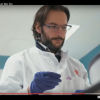Latest questions:
Trending questions:
Hot questions:
Tools to Determine Appropriate Therapy for Patients
4 answers
Pharmaceutical innovation could provide new treatment for common diseases
Innovation in drug discovery, genetics, biotechnology, material sciences and bioinformatics has already improved treatments for conditions such as HIV, cancer and heart disease and offers hope of better treatments for neurodegenerative diseases.
Advances in diagnostics, devices and robotics could improve outcomes
Developments in diagnostics and drug delivery could reduce drug errors, increase compliance and improve efficacy.
Precision medicine could revolutionise our ability to predict, preventand treat a range of conditions
Low-cost genetic sequencing, genome mapping, biomarker tests, and targeted drugs and treatments will enable professionals to provide tailored health information and create personalised treatments to improve patient outcomes.
Regenerative medicine shows potential but wide-scale benefits remain elusive
Despite advances in stem cell transplantation, cell reprogramming and synthetic and artificial organs, effective and safe regenerative therapies remain elusive and expensive and have yet to be realised on a wide scale.
Technological advances could transform interactions between professionals and patients
Professionals can already hold consultations with, monitor and deliver care to patients at home using home-based remote technologies and video conferencing. This trend is likely to continue. In the future, medical 'apps' for mobile phones will also allow patients to access their medical records, make appointments and seek personalised health information and support.
With patients in the community suffering from complex problems, practitionerd need to carry out an assessment, which can take up to 150 minutes or longer, medical devices that screen the person are effective tools in delivering a diagnosis, coupled with a blood finger prick, can aid in this. A dictaphone that captures and records the notes taken by the practitioner would be very useful especially if it has OCR scanning software speech to text. That and the ability to social presecribe so that medications can reach the client speedily. Invariably the outside world is fragmented and the IoT should reduce the physical time of a person on the ground, enabling better reporting and prioritising.
Personalized medicine, guided by genomics, is very effective. The consensus clinical guidelines are published by the Clinical Pharmacogenetics Implementation Consortium. Their data is excellent but the interface is not suitable for a busy clinical setting. At GeneYouIn (www.pillcheck.ca) we built the IT technology to remove all barriers to using pharmacogeneomic insights in routine care. The genetic assay is optimized to provide high level of sensitivity for an ethnically diverse population. The Pillcheck Report covers ~ 60% of all medications prescribed. The service includes a letter prepared by a specially trained pharmacists to aide with application of results in the context of a specific patients' needs/preferences.
non invasive medical devices, non invasive methods to screen patients, such us liquid biopsies, (urine, blood tests to determine cancer biomarkers) should be the trend together with personal medicine in clinic. This, could be together with personal prescreening using apps developed by clinicians.






